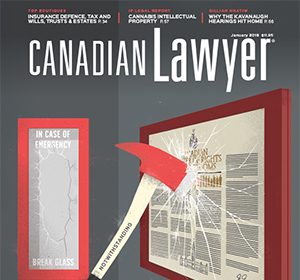Medeiros v. Petopia Ltd. et al 2020 ONSC 1562 is one of the few cases that addresses partial summary judgment in the context of when some, but not all, defendants are released from an action. It will serve to provide some clarity on what has been a contentious area of law since powers under Rule 20 were expanded.
The action arises out of a dog bite. Defendant Campbell owned Mali, a purebred Thai Ridgeback. Campbell kenneled Mali with co-defendant Petopia while away on business. While being kenneled, Mali bit a Petopia employee in the face.
Ryan argued that the plaintiff herself was in possession of Mali at the time of the bite and, accordingly, she is deemed to be an owner under the Dog Owners Liability Act (“Act“) and as such she is not entitled to compensation under s. 2(1) of the Act. The plaintiff conceded this point at the motion, but argued that Campbell was still liable in negligence. The plaintiff further argued that the motion should be dismissed as it was a request for partial summary judgment as Petopia would remain in the action. The plaintiff submitted that there was a risk of duplicative procedures or inconsistent findings at trial.
While motions for partial summary judgment are rare, they remain appropriate in situations where the issues can be readily bifurcated. Ryan argued that the potential negligence against Campbell as an owner was readily separable from the potential negligence of Petopia as an employer and accordingly the actions could be bifurcated. His Honour ultimately agreed.
In Medeiros it is important to note that not only did Petopia, as co-defendant, agree to dismiss its crossclaim, but further agreed via affidavit that it would not raise any issues of negligence or liability as against Campbell at trial.
Finally, his Honour agreed that “keeping a defendant who has no liability in an action because a co-defendant may be liable does not align with the overriding principles of a summary judgment motion of achieving a fair process and just adjudication.”
























































